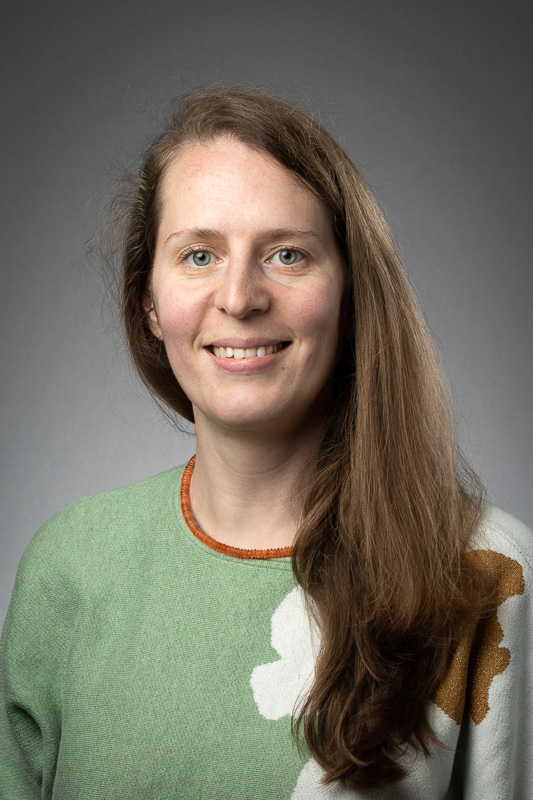
I am a Serra Húnter Fellow and Assistant Professor at the Department of Computer Engineering and Digital Design, University of Lleida.
spacer
My academic journey has taken me from design practice to exploring how people learn and interact with technology through Human–Computer Interaction and computing education. After graduating in Design from HAWK Hildesheim in Germany (2009), I spent five years working in the industry. I then pursued graduate studies at Universitat Pompeu Fabra in Spain, completing a Master’s in Cognitive Systems and Interactive Media (2014) and a PhD in Information and Communication Technologies (2019). After that, I joined the Center for Computational Thinking and Design at Aarhus University as a Postdoctoral Researcher (2020–2023) and was later invited as a Guest Professor at the Teacher Education Center of University of Vienna (2023). Since 2023, I have been collaborating with the Gender and ICT research group at the Universitat Oberta de Catalunya. Alongside my academic work, I co-founded COSICOSA (2018-), a cultural association that explores creative, participatory, and reflective approaches to computing education through exhibitions, learning experiences, and didactic materials.
As a design researcher, my work unfolds at the intersection of education, technology, embodiment, and critical social inquiry. I am deeply interested in how emerging technologies can be made accessible and meaningful for young people. In this regard, grounded in feminist and intersectional perspectives, my research seeks to question who designs technology, whose voices are amplified, and how we can foster inclusive and critical forms of digital literacy from an early age. Whether I am working with educational technologies, facilitating participatory design workshops, or reflecting on theoretical frameworks, my goal is to co-create spaces where diverse learners feel recognized, empowered, and inspired to engage with technology through curiosity and care.
Contact
Email: marie-monique.schaper@udl.cat
ORCID: 0000-0003-4620-3797
Social: LinkedIn
Selected publications
Schaper, M. M., Tamashiro, M. A., Smith, R. C., & Iversen, O. S. (2025). Diversity in AI Education: Tailoring Students’ Learning Paths for Inclusive Learning about Facial Recognition. ACM Trans. Comput. Educ. 25 (2): 20:1-20:33. https://doi.org/10.1145/3727985.
Iivari, N., Iversen, O. S., Kafai, Y., Antle, A. N., Petersen, M. G., Kinnula, M., Dindler, C., Kayali, F. Bonsignore, E., Monga, C., Schaper, M.-M., & Sharma, S. (2025). Pushing the Boundaries of Computational Empowerment of Children. In Proceedings of the 24th Interaction Design and Children (pp. 1231-1234). https://doi.org/10.1145/3713043.3734470.
Schaper, M. M. (2024). Gender literacy through the making process: A feminist pedagogy approach. International Journal of Child-Computer Interaction, 40, 100648. https://doi.org/10.1016/j.ijcci.2024.100648
Iivari, N., Iversen, O. S., Smith, R. C., Schaper, M. M., Ventä-Olkkonen, L., Hartikainen, H., Sharma, S., Kinnula, M., Lehto, E. Holappa, J. & Molin-Juustila, T. (2024, June). Transformative agency–the next step towards children’s computational empowerment. In Proceedings of the 23rd annual ACM interaction design and children conference (pp. 322-337). https://doi.org/10.1145/3628516.3655806.
Schaper, M. M., Smith, R. C., Van Mechelen, M., Tamashiro, M. A., & Iversen, O. S. (2023). Co-designing sustainable practices for emerging technologies education. International Journal of Technology and Design Education. https://doi.org/10.1007/s10798-023-09857-3.
Smith, R. C., Schaper, M. M., Tamashiro, M. A., Van Mechelen, M., Petersen, M. G., & Iversen, O. S. (2023). A research agenda for computational empowerment for emerging technology education. International Journal of Child-Computer Interaction. https://doi.org/10.1016/j.ijcci.2023.100616.
Van Mechelen, M., Smith, R. C., Schaper, M. M., Tamashiro, M., Bilstrup, K. E., Lunding, Petersen, M. G., & Iversen, O. S. (2023). Emerging Technologies in K–12 Education: A Future HCI Research Agenda. ACM Transactions on Computer-Human Interaction, 30 (3), Article 47. https://doi.org/10.1145/3569897.
Schaper, M. M., Tamashiro, M. A., Smith, R. C., Van Mechelen, M., & Iversen, O. S. (2023). Five Design Recommendations for Teaching Teenagers’ about Artificial Intelligence and Machine Learning. In Proceedings of the 22nd Annual ACM Interaction Design and Children Conference (IDC ’23). Association for Computing Machinery, New York, NY, USA, 298–309. https://doi.org/10.1145/3585088.358936.
Schaper, M. M., Segura, E. M., Malinverni, L., & Pares, N. (2023). Think-4-EmCoDe framework: Highlighting key qualities in embodied co-design techniques for children. International Journal of Human-Computer Studies, 177, 103065. https://doi.org/10.1016/j.ijhcs.2023.103065.
Schaper, M. M., Smith, R. C., Tamashiro, M. A., Van Mechelen, M., Lunding, M. S., Bilstrup, K. E. K., Kaspersen, M. H., Jensen, K. L. Petersen, M. G., & Iversen, O. S. (2022). Computational empowerment in practice: Scaffolding teenagers’ learning about emerging technologies and their ethical and societal impact. International Journal of Child-Computer Interaction, Volume 34. https://doi.org/10.1016/j.ijcci.2022.100537.
Schaper, M. M., & Pares, N. (2021). Co-design Techniques for and with Children based on Physical Theatre Practice to promote Embodied Awareness. ACM Transactions on Computer-Human Interaction, 28, 4, Article 22 (July 2021), 42 pages. 8. https://doi.org/10.1145/3450446.
Schaper, M. M., Iversen, O. S., Malinverni, L., & Pares, N. (2019). FUBImethod: Strategies to engage children in the co-design of Full-Body interactive experiences. International Journal of Human-Computer Studies, 132: 52-69. 9. https://doi.org/10.1016/j.ijhcs.2019.07.008.
Malinverni, L., Schaper, M. M., & Pares, N. (2019). Multimodal methodological approach for participatory design of Full-Body Interaction Learning Environments. Qualitative Research, 19(1): 71-89. 10. https://doi.org/10.1177/1468794118773299.
Schaper, M. M., Santos, M., Malinverni, L., Berro, J. Z., & Pares, N. (2018). Learning about the past through situatedness, embodied exploration and digital augmentation of cultural heritage sites. International Journal of Human-Computer Studies, 114: 36-50. https://doi.org/10.1016/j.ijhcs.2018.01.003.